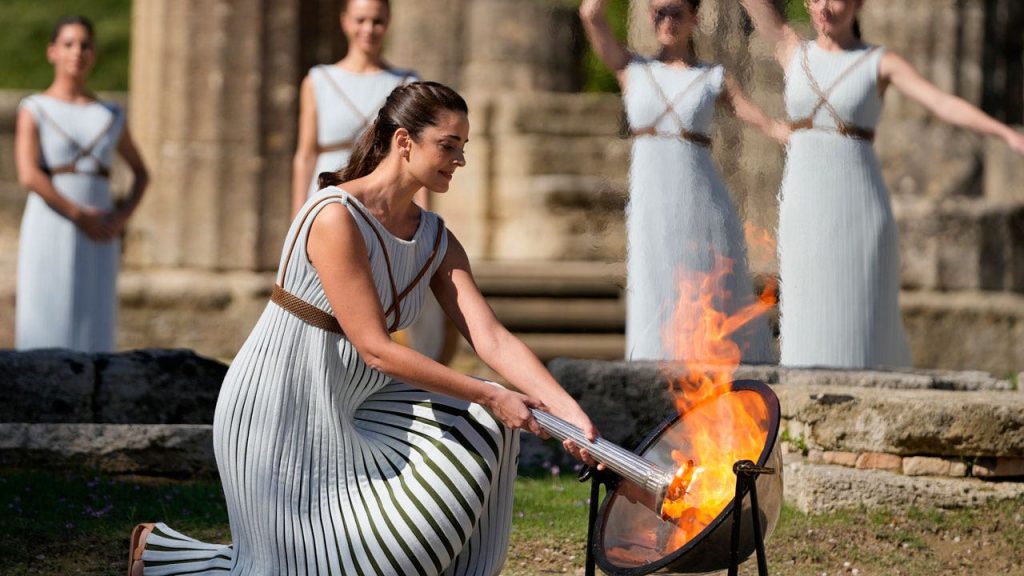The flame for the summer’s Paris Olympics was lit in Greece in a carefully orchestrated ceremony, a tradition that has been carried out for nearly 90 years to connect the modern games with their ancient Greek origins. The torch is lit using a mirror that focuses the sun’s rays onto the torch, creating a spectacle that is meant to blend the games of antiquity with the modern revival of the Olympics. The flame will travel through Greece before being handed over to French organizers in Athens, where it will then begin its journey to Paris. The flame will burn in the Olympic stadium until the end of the games and will also be used for the Paralympics.
Despite the elaborate process of lighting the torch, which involves an actor playing an ancient Greek priestess using a concave mirror to ignite the torch, there have been instances where weather conditions or protests have disrupted the ceremony. Rain or heavy cloud cover can prevent the mirror from functioning properly, and potential protests can pose security challenges for the organizers. Despite these challenges, the ceremony at Olympia proceeded smoothly without any incidents. The flame-lighting being a highly televised event is a magnet for activists wanting to make a statement, and in the past, human rights activists have disrupted the ceremony. However, measures have been taken to prevent protests from disrupting the event.
The ancient Olympic Games, which started in 776 B.C. in honor of Zeus, were the most important of the major Greek sporting festivals, attracting up to 40,000 spectators who watched events such as running, wrestling, and horse racing. The tradition of carrying the Olympic flame from Greece to the host city was introduced in the 1936 Olympics held in Nazi Germany and has been followed with modifications ever since. The modern Olympic Games differ significantly from the ancient games, where athletes competed naked, winners received olive wreaths and statues, and games were held in honor of the king of the Greek gods, Zeus.
The Olympic flame is a symbol of unity and tradition, connecting the modern games with their ancient origins. The ceremony at Olympia where the torch is lit is a carefully orchestrated event that involves both historical and modern elements, showcasing the blending of antiquity with the modern revival of the Olympics. Despite challenges such as weather conditions and potential protests, the flame-lighting ceremony proceeded smoothly, kicking off the journey of the flame from Greece to Paris. The tradition of the Olympic flame, with its historical significance and symbolic meaning, continues to reignite passion for the games and engage audiences worldwide.













